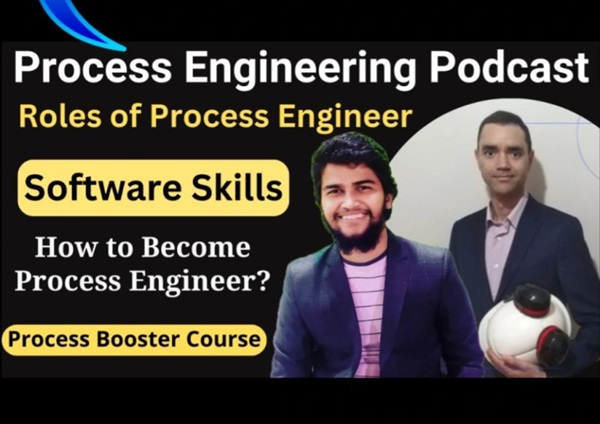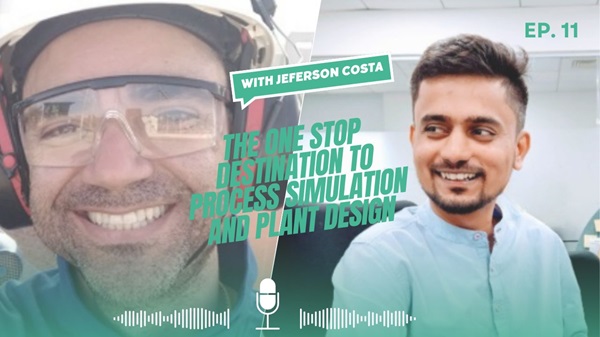Not only chemical engineers but also any engineer has a lot of options to focus their career. I have friends from College times, all chemical engineers, that nowadays work with banks, human resource, marketing, sellings etc, just to name a few areas outside the main core of chemical engineering.
In my point of view, core chemical process engineering jobs are plant operation, process safety and plant design. I will not talk about Research and Development (R&D) because I do not have expertise in this area.
Most of the Colleges prepare the Chemical Engineer to be a generalist and some of them to be a scientist. Prepare yourself to the job market sometimes is not an easy task because usually, people do not have a clear understanding of what they wish for their career. They just want to get any job and pay the bills.
In any case, although your first job may not be the one you dream of, I believe that preparing yourself to the area you wish to, increases exponentially your chances of getting a job in that segment. Based on this and that many people ask my point of view on to how to prepare themselves, I will let you know my thoughts.
Before starting. People in my Telegram Channel INProcess already heard me talking about this subject you are reading now. INProcess is the best place to have exclusive content of mine about chemical process engineering and plant design. Link to INProcess at https://www.jefersoncosta.com/inprocess
That said, you should consider the following to prepare yourself to the job market:
PLANT OPERATION
Working in an industrial plant with operation means that you need to use your knowledge in chemical engineering to do troubleshooting and improve plant performance. Most of the troubleshooting expertise you will learn from experience and talking to senior people. On the other hand, you can improve your chances of getting a job at industrial plant investing in Six Sigma, Lean Manufacturing, Total Controle Management (TCM). In summary, you should focus on quality knowledge. This will open your mind to identify points of improvement and reduction of wastes. Investing in a green belt certification should be considered.
PROCESS SAFETY
In big companies, it is used to be an independent department. However, in small and medium companies process safety roles are chemical engineer responsibility. Even if you do not intend to work dedicated to process safety, I strongly recommend you to have basic knowledge in this area because you will use it to perform plant operation and plant design roles.
In process safety, you will work with the identification, understanding and prevention of process hazards. Prepare yourself to be part of the solving process and not only to point problems. To increase your chances of getting a job position in this area I recommend you to learn about hazard analysis technics like HazOp, Hazid, Lopa etc. People in this area also have a good understanding of gas dispersion, area classification and so on.
PLANT DESIGN
In my point of view, this is the core of chemical process engineering. It is very broad area and although you get a position as a chemical process engineer in a plant design office you may never design some equipment as reactors, furnaces etc because that requires very specific knowledge. In fact, sometimes, specify is a better word than design equipment. I will let this discussion to another time.
Thinking about getting a job in plant design I recommend you to learn about PFD and P&ID reading and development. This is one of the most BASIC skills that any chemical process engineer must have not only to Plant Design but also to Plant Operation. While the PFD is the document used to represent the heat and material balance, the P&ID is the document that interfaces all other disciplines like mechanical, piping, instrumentation, automation and so on.
Another good skill to add to your CV is process simulation software. There are a bunch of them in the market and they need someone who knows evaluate inputs and outputs. In any case, if well used, they save you a lot of time in the heat and material balance development. Personally I have been working with Aspen Hysys, Unisim and Symmetry. The two first are quite similar and you will not have any problem shifting from one to another. Once you know one of them It is easier to learn another software.
I recommend you to learn about project management also. You do not need to get a PMI (project management institute) certification however who is part of a project team must understand scope, schedule and cost at a minimum, and also about other areas of knowledge related to project management.
LAST WORDS
There is a lot more to be said, but to finish this article, in my point of view, you need to add to your technical skills ability to communicate in English (read, listen to and talking to) and Microsoft office (word, excel and powerpoint) or equivalent because you will do much more communication than calculation. In fact, if you do more calculations than communication I would say that in a short period of time you will be replaced by a computer.
Now, review your Cv and identify the best way to upgrade it according to the career that best fits to you.
—
PS. To have exclusive content about chemical process engineering and plant design get into my Telegram INProcess Channel at https://www.jefersoncosta.com/inprocess
Subscribe to my YouTube Channel The Chemical Process Engineer and Plant Design to have videos about the chemical process engineer day in the life serie´s.
Connect with me in LinkedIn at https://www.LinkedIn.com/jeferson-costa-chemical-process-engineer
Chemical/Process Engineer
Aramco Company Location Dhahran, SA
- Minimum Requirements
As a successful candidate, you should hold a Bachelor’s degree in Chemical Engineering. MSc degree is highly preferred. A Professional Engineer (P.E.) or Chartered Engineer (C. Eng.) license or registration is desirable.You must have a minimum of 10 years’ experience as a process engineer with and Oil & Gas operator or engineering company.
You must have the knowledge of industry standards and codes such as API and ASME is required to support the design reviews, and plant modifications.
You should have experience in developing PFDs and P&IDs, troubleshooting process issues and equipment failures including pumps, compressors, and dehydration systems.
You must have experience in troubleshooting process issues and equipment failures including pumps, compressors, and dehydration systems.
You should also have experience with process simulation modeling with Hysis or other industry standard software, conducting risk assessments, PHAs and HAZOPs, commissioning and testing process system and equipment, preparing process equipment specifications and process datasheets.
You should have a thorough understanding of plant operations, process technologies, process modeling, capital investment and business drivers, and economic evaluations and be able to demonstrate the ability to work with multidisciplinary teams producing reports, studies and doing presentations that provide basis for management’s decision.
Chemical Production Engineer
BayerCompany Location Luling, LA, US
Required Qualifications:
- Bachelor of Science in Chemical Engineering;
- Minimum 6 years of experience working as a Chemical Engineer;
- Knowledge of batch/continuous process control techniques and unit operations in DCS;
- Intermediate proficiency in Word, Excel, Outlook and PowerPoint;
- Demonstrated leader in safety;
- Ability to lead without direct authority through influence;
- Ability to apply statistics and Six-Sigma tools in a manufacturing environment;
- Experience in project definition, design and process control;
- Serves as a change agent across various work groups.
- Ability to set climate/culture on diverse team composed of fellow engineers, operations, personnel



